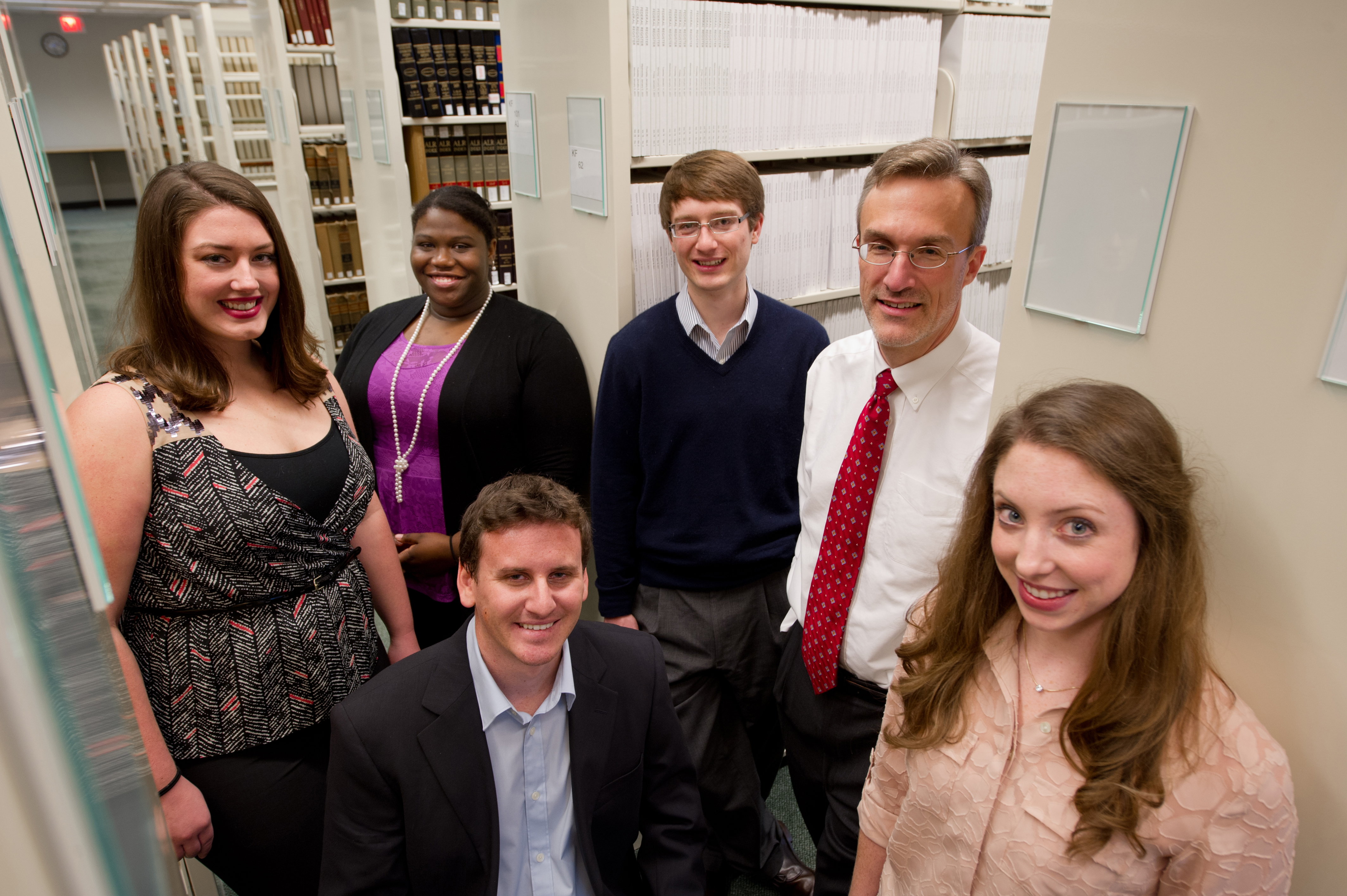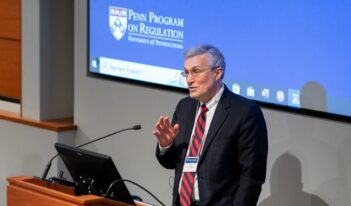
With the launch of a new, innovative website, RegBlog.org continues to pursue unconventional ambitions.
When the Penn Program on Regulation (PPR) first established a blog on regulation nearly four years ago, it was a rather conventional blog. But PPR sought to use its project to pursue some rather unconventional aspirations: making accessible and interesting one of the most vital but least visible facets of law and policymaking—regulation.
PPR’s blog – RegBlog – has successfully advanced its important mission, but now we are excited to announce two major changes that signal a new chapter for RegBlog.
First, we’ve moved RegBlog to its own domain – www.RegBlog.org – where all of its content will now reside. (Rest assured, we’ve put auto-forwards in place for those who have bookmarked or linked to our former pages.)
Second, and more significantly, RegBlog will now be published on a new, completely re-designed platform that looks far from anything like a conventional blog. RegBlog’s new design better matches the innovative spirit and unconventional aspirations that led to its launch four years ago.
Our new site makes it easier for readers to access RegBlog’s content, especially users who read RegBlog on mobile and tablet devices. We also continue to reach out to readers through our weekly newsletter and dynamic Twitter feed.
RegBlog’s staff members – students at the University of Pennsylvania Law School – edit and publish incisive analyses and timely news stories that touch on every important regulatory question of our day. New content appears online every weekday, even during school exam periods, holidays, and summer vacations. Indeed, more than eight hundred stories and essays have appeared on RegBlog in just the last several years.
As RegBlog’s content has expanded, so too has its audience. RegBlog has readers in more than 180 countries, many of whom work in major government agencies, legislatures, and executive offices, not to mention law firms, businesses, universities, and think tanks.
RegBlog has also been proud to feature work submitted by an array of important regulatory scholars and practitioners. Our contributors from Penn have included Vice Provost Anita Allen and Professors Tom Baker, John Dilulio, Howard Kunreuther, Paul Robinson, Theodore Ruger, David Skeel, and David Zaring.
Our more than one hundred outside contributors have, to name just a few, included: Ian Ayres of Yale Law School; Nina Mendelson of the University of Michigan Law School; Robert Stavins of Harvard’s Kennedy School; Peter Strauss of Columbia Law School; and David Vogel of UC Berkeley’s Haas School of Business.
RegBlog has also featured work by a sitting member of the U.S. Court of Appeals, a former member of Congress, two sitting commissioners of the U.S. Consumer Product Safety Commission, and four former administrators of the White House Office of Information and Regulatory Affairs (Sally Katzen, John Graham, Susan Dudley, and Cass Sunstein).
From outside government, RegBlog has published essays by a variety of professionals in think tanks, law firms, and advocacy organizations, including work authored by Randy May, the President of the Free State Foundation, and Rena Steinzor, the President of the Center for Progressive Reform.
When PPR launched RegBlog four years ago, its mission was simply stated. It would be a blog “devoted to tracking important issues and developments related to regulation and regulatory processes.” It would aim to fill a void for accessible but nonpartisan treatment of regulatory policymaking and enforcement. It would seek to do so by publishing content that would “feature new research, highlight proposals for regulatory policy and procedures changes, and serve as a vehicle for exchanging ideas about regulation.”
RegBlog has done just that, and we believe we were right in thinking RegBlog had a valuable mission to serve. We note that in the intervening years, several commercial media organizations have made moves in an effort to fill the same kind of need. Bloomberg now compiles news on government regulation, and the D.C.-focused newspaper, The Hill, has entered the scene by launching its own “regulation blog” called, yes, RegWatch.
Despite the establishment of other outlets, RegBlog remains the only nonprofit, nonpartisan site of its kind. It remains the site for in-depth coverage of important regulatory issues not getting covered elsewhere on the Internet. Just take a look at some of our recent essays, whether on how the recent U.S. government shutdown might affect regulation or on citizen participation in regulatory decision making in China.
Also take a look at some of the special series that we have run. For example, recently we’ve run two series on the growing concern about what lawyers call “incorporation by reference” – or the wholesale borrowing of private industry standards by government regulators. The problem is that the private standards adopted by government agencies are not always available to the public, so incorporation by reference often runs at odds with contemporary principles of transparency in the rule of law.
By focusing on both emerging and persistent challenges of regulation, RegBlog remains true to its mission of providing the most thoughtful and comprehensive online source of regulatory news, analysis, and opinion.
As RegBlog starts a new and exciting chapter, it is positioned better than ever before to advance unconventional ambitions: lifting back the cloak of the regulatory process, informing the public about key regulatory policy decisions, and offering an open venue for debate and scholarly inquiry. Come, turn the virtual page with us … and read on.





